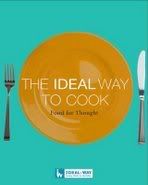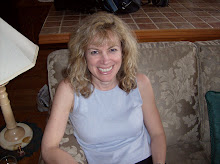 One of my favourite things to do is sit on the deck and read a good book. I can't get enough of books, sometimes juggling two or three at a time. A murder mystery is in my car (it's unthinkable to sit in a waiting room without the latest P.D. James tome to distract me from an impending dreaded root canal); my old standby, Pride and Prejudice, graces my end table in the bedroom, and dozens more are scattered throughout various rooms in our house.
One of my favourite things to do is sit on the deck and read a good book. I can't get enough of books, sometimes juggling two or three at a time. A murder mystery is in my car (it's unthinkable to sit in a waiting room without the latest P.D. James tome to distract me from an impending dreaded root canal); my old standby, Pride and Prejudice, graces my end table in the bedroom, and dozens more are scattered throughout various rooms in our house.Books have always been a comforting presence in my life, as well as a pleasurable way to pass the time. Oh, let's face it, some women experience the 'thrill of the hunt' when shopping for shoes, or bling. I get the same tingles all over my body when I enter a bookstore or a library.
Thankfully, I've been blessed with opportunities to sit down with other book addicts and spend countless hours mulling over the good, the bad, and the just plain ugly in every great opus.
Imagine my excitement, then, when I read that a book club was developed exclusively for the intellectually disabled? According to Newsday, "five years ago, with the help of like-minded advocates and the Port Washington Public Library, (a mother of a Down syndrome man) formed Books for Dessert, a book club - thought to be the only one of its kind on Long Island - for adults with intellectual disabilities."
"People have always assumed that people like Jamie don't really have opinions on anything remotely complex," said his mother, Nancy Comer. "They're just expected to work and be happy."
Another book club was created in Ohio, called the Next Chapter Book Club. It was "founded in 2002 at Ohio State University's Nisonger Center and now has more than 100 chapters across the country (the U.S.)," said program director Tom Fish."
Hmmm, that's all well and good for those who are lucky enough to reside in areas close to these book clubs, but what about those people who live in the boonies, or for that matter, don't happen to live in the United States?
The more I read about this wonderful opportunity, the more I itched to create the same thing, here, in Canada. I reflected on how book clubs allow the participants to create a social network, and as Fish said, "even though people with intellectual disabilities are living with greater frequency in their community, that doesn't mean they're part of the community."
After Googling everything under the sun, I finally struck gold. "Seek and ye shall find," as my mother drilled into us as children. The Down Syndrome Research Foundation (DSRF) recently announced they're bringing the Next Chapter Book Club to Canada, albeit British Columbia. However, after checking out the contact list on the Chapter Book Club site, I found a contact name in Erie County, Ontario. Eureka!
I liked the site. It's warm, friendly, and doesn't talk down to the reader. And I liked the fact that "unlike any other book club, the Next Chapter Book Club provides adolescents and adults with intellectual disabilities the opportunity to read and learn to read, talk about books, and make friends in a fun, community setting. Next Chapter Book Clubs meet weekly in local bookstores and cafes to read and discuss books of their choosing. NCBC members range from those who read well to those who do not read at all."
If your local town or city doesn't have a book club, why not start up your own club? Adapted classics are available at every bookstore, or can be purchased online. As one member said, "I like coming here because I like to read history...and I like this group. I'm alive, and I feel great being here."
It doesn't have to be a book club, of course. How about an art club, or a crafts club? The list is endless. Let's just open the gates of our communities, and invite the intellectually disabled in. Give them a place where their voices can be heard. Because they have a lot to say. We're just not listening.















































